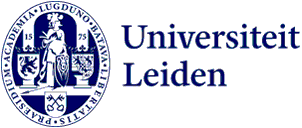Jeroen Duindam appointed new academic director of the Institute for History
The Institute for History has a new academic director. Professor of Early Modern History Jeroen Duindam will take on this role from 1 September. ‘You can only do this job properly if you make time for it.’

Duindam started working in Leiden back in 2010. ‘I have a fantastic job as a lecturer, researcher and professor, but here at the institute we have a system where we have to take care of the management among ourselves,’ he says. ‘I think that’s a good thing because that way we’re all jointly responsible. Teaching and doing research are now second nature to me. This role is a bit different. I thought to myself: “You’ve been here for a while now. Let’s see if you can do that, too”.’
Like other academic directors, Duindam will not be giving up his teaching and research duties completely; however, he is quite clear about where his priorities will lie in the coming years. ‘You shouldn’t take this job thinking that you can do it as an extra task alongside your usual work. That’s like thinking you can write a book when there are two children in the room: it’s just not going to work.’ He has therefore decided to prioritise his tasks as academic director. ‘I am very fond of the institute, the university and the faculty, so I want to make a meaningful contribution. When I was preparing for the role, I talked to a lot of enthusiastic people who were also preparing to take on a management role. That made me even more keen to get started.’
A place for new groups
Duindam already knows which direction he wants to take. ‘Traditionally, we were an Institute for History, and we offered a degree programme in History. Back then, the programme was the institute. But now we offer a range of different programmes, and the organisation at programme level is not the same as at institute level. This means that you have to find a place for those people who have joined us, for example, on the degree programmes related to Africa, Latin America, International Studies and International Relations. We have to take the collegiality that already characterises this institute and extend it to these other groups, and at the same time preserve the resilience and solidarity that we used to have when we offered just one degree programme.’
Duindam believes that the inclusion of new groups shouldn’t just be limited to collegiality. ‘You could also integrate administrative responsibilities. That might sound like I want to spread out the tasks more among the staff, but one of the strengths of this institute has always been that governance is based on trust. We talk to each other, of course, but we don’t meet every week to check up on what each other is doing. You have to extend that trust to the other groups, too. That way, everyone can participate fully and have their say.’
Unique international dimension
Duindam is also keen to initiate substantive dialogues with the other groups, both within and outside the faculty. ‘Thirty years ago, you could perhaps still present history as Dutch, European and World history from the moment Europe expanded across the globe, but I think it’s hugely important to be aware of what has happened outside the area where we live at all times in history. Leiden already does that quite well, but I think we could take it a step further, for example, by working with the Institute for Area Studies. Teaching and research at Leiden University have a strong international dimension. Specialisations and language areas that are not represented elsewhere converge here. I think that we can capitalise on this added value intellectually by thinking beyond the boundaries of the institutes.’
